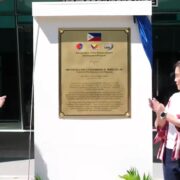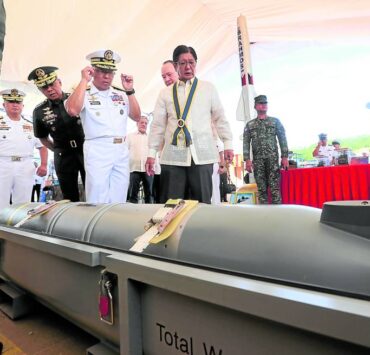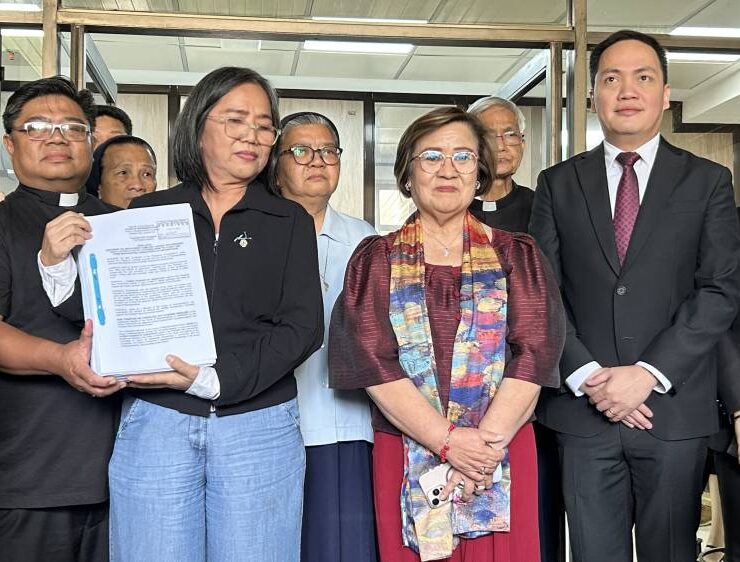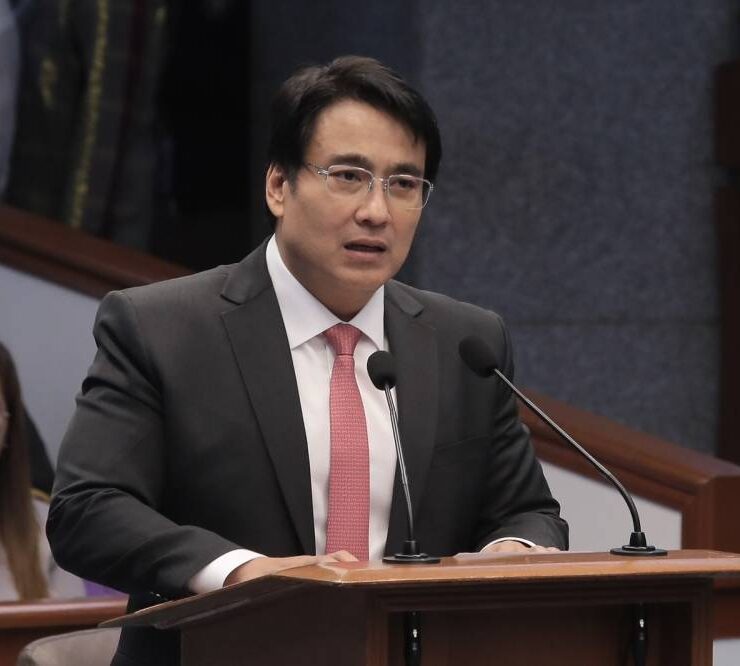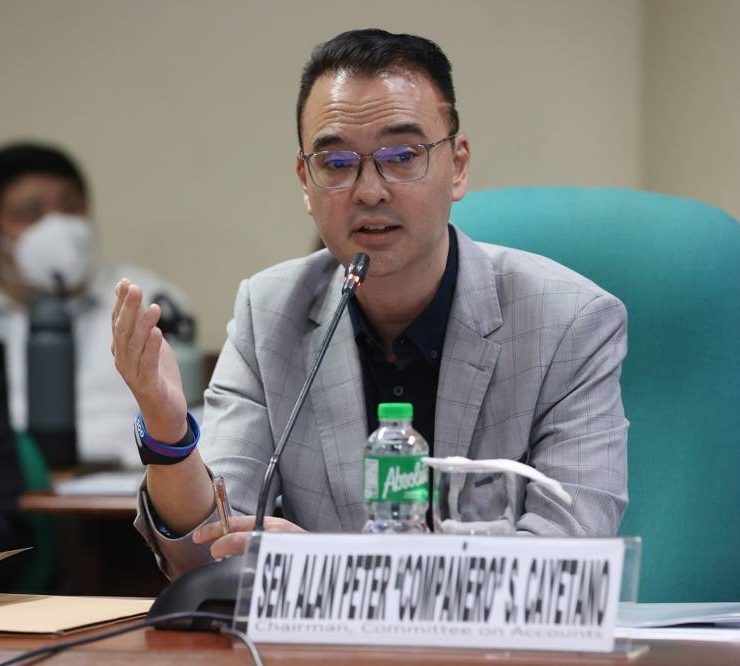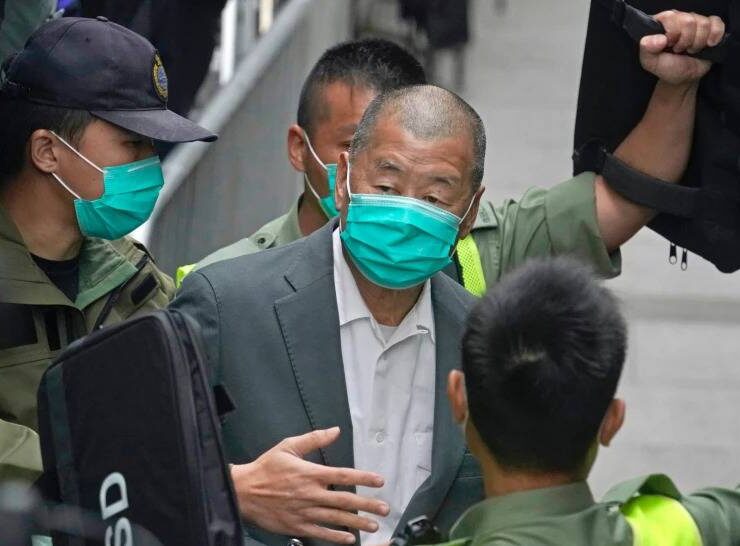No-contact policy TRO lifted on major roads
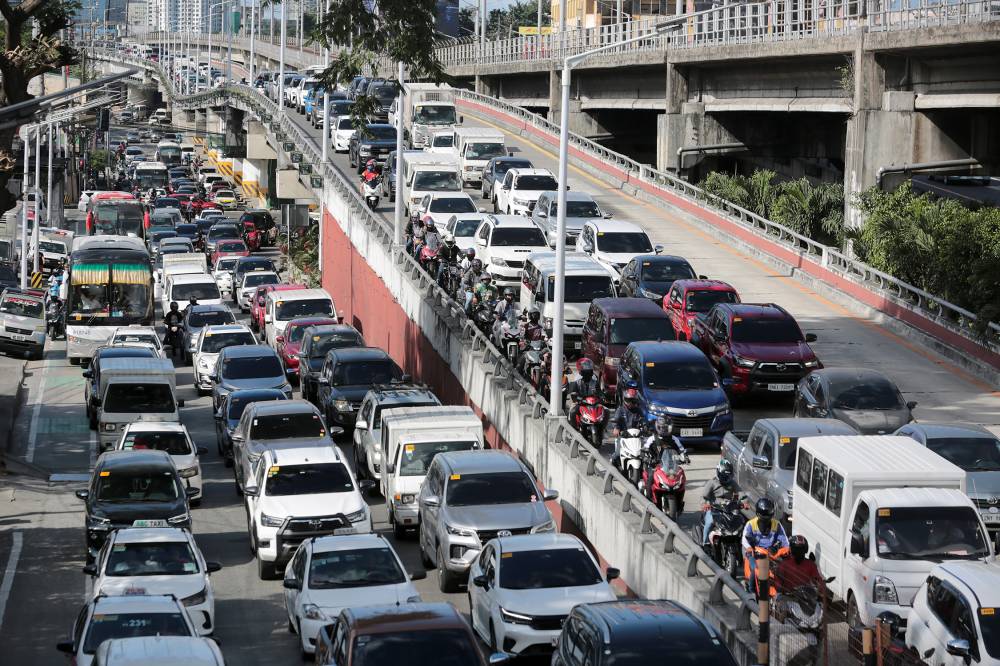
The Supreme Court has partially lifted the temporary restraining order (TRO) on the No Contact Apprehension Policy (NCAP), allowing its implementation “effective immediately” along Metro Manila’s major thoroughfares, including C-5 and Edsa.
A lawmaker meanwhile has called for the observance of due process and pedestrian rights, with the NCAP now in effect.
In a press briefing on Tuesday, Supreme Court spokesperson Camille Ting announced that the high tribunal, sitting en banc, granted the urgent motion filed by the Office of the Solicitor General (OSG) on behalf of the Metropolitan Manila Development Authority (MMDA).
The MMDA welcomed the lifting of the TRO, saying “the reinstatement of NCAP is expected to strengthen the agency’s traffic management along Edsa and other major thoroughfares, utilizing closed-circuit television cameras, digital cameras, and other technology to capture videos and images of traffic violators, record traffic violations, and issue citations.”
According to the MMDA, it hopes the resumption of NCAP’s enforcement after three years would “instill road discipline among motorists.”
It also assured motorists that the single ticketing system and new NCAP guidelines have addressed the concerns raised by its critics.
The OSG, in its motion, cited worsening traffic congestion, a surge in violations across Metro Manila’s main roads, and the anticipated rehabilitation of Edsa as justification for the resumption of the MMDA’s suspended policy. (See related story on this page.)
In a Viber message to reporters, Solicitor General Menardo Guevarra said that aside from Edsa and C-5, the policy would also cover other major thoroughfares, including Katipunan, Marcos Highway, Roxas Boulevard, Commonwealth Avenue, Quezon Avenue, West Avenue, E. Rodriguez Avenue, and Gil Puyat Avenue, among others.
“The lifting of the TRO will foster traffic discipline, help improve traffic management, and reduce vehicular accidents,” Guevarra said.
Partial lifting
The high tribunal effectively lifted the TRO it had issued on Aug. 30, 2022, but only in relation to MMDA Resolution No. 16-01, its version of NCAP, and not the ordinances passed by local government units (LGUs).
“So the TRO is only lifted with respect to the MMDA but it still remains with respect to the LGU ordinances,” Ting said.
“[NCAP] can only be implemented by the MMDA in major thoroughfares because the MMDA resolution only refers to major thoroughfares, especially C-5 and Edsa,” she noted.
The Supreme Court’s ruling stems from consolidated petitions, including Kilusan sa Pagbabago ng Industriya ng Transportasyon Inc. et al. v. City of Manila et al. (G.R. No. 261892); Juman Paa v. Sangguniang Panglungsod ng Manila and Dr. Maria Sheilah Lacuna-Pangan (G.R. No. 262192); and Philippine National Taxi Operators Association Inc. et al. v. City of Manila et al.
The petitioners asked the high court to declare as unconstitutional various LGU ordinances implementing NCAP across Metro Manila starting in 2016.
In its May 9 urgent ex-parte motion for the partial lifting of the TRO, the OSG clarified that although the MMDA was named as a respondent in one of the petitions, none of the consolidated cases challenged the legality of the MMDA’s own resolution on NCAP.
Traffic violators
The OSG emphasized recent developments in traffic management in the capital, asserting that mounting evidence underscored the need to resume the NCAP.
While the MMDA has since rolled out a Single Ticketing System in 2023, government lawyers argued that this alone was not enough to ease worsening traffic.
Citing MMDA data, the OSG said road congestion and vehicular accidents were largely due to motorists’ “disregard of traffic rules and lack of road discipline.”
It further noted that since the TRO’s issuance in 2022, MMDA CCTV cameras recorded nearly 833,097 traffic violations.
“In March of this year alone, 12,566 traffic violations were documented—well above the 9,500 average monthly traffic violations prior to the NCAP’s suspension,” the OSG said, noting that the MMDA could not reasonably apprehend all violators given its limited manpower.
“Given the sheer volume of vehicles and the complexity of Metro Manila’s road network, the limited deployment of MMDA traffic enforcers and deputized local officers is grossly inadequate to manage the anticipated surge in traffic,” the OSG said, adding that existing traffic measures “simply fall short of what the situations demand.”
Manpower lack
According to MMDA Chair Don Artes, the NCAP was urgently needed to be enforced as a way to address the expected worsening of traffic on Metro Manila’s major roads as the government starts the rehabilitation works of Edsa.
Earlier this month, Transportation Secretary Vince Dizon had also urged the high court to lift the TRO on the NCAP in Metro Manila as a way to deter violators and prevent road crashes.
Dizon said it was “physically impossible” for law enforcement officers to apprehend all road violators without NCAP, some of whom were involved in road crashes.
Authorities earlier raised the alarm over the increasing number of road crashes in the country, with young Filipino children being the most disproportionately affected.
According to the latest data from the Philippine Statistics Authority, there were 13,101 deaths due to road traffic accidents in the country in 2023, which was 7-percent higher than the 12,241 deaths recorded in 2022.
Of the total recorded deaths, 1,044 or 8 percent were children below 18 years old, or equivalent to three Filipino kids being killed on the road every day.
Due process
In Congress, Albay Rep. Joey Salceda on Tuesday said the government must first implement four measures that protect commuters’ rights before it implements the Supreme Court’s decision.
In a statement, Salceda, who heads the House ways and means committee, said any new version of the NCAP must not violate due process, the very reason it was ordered suspended in the first place.
Among others, he said traffic enforcement agencies must institutionalize a clear and accessible appeals mechanism just like in the United States, where NCAP-type violations can be contested before a traffic judge.
He also called on the Department of the Interior and Local Government and the Public-Private Partnership Center to ensure that NCAP implementations, especially those outsourced to private companies, do not violate commuter rights or due process.
Metro Manila local government units should also ensure proper road signages and uniform traffic rules.
At the same time, Salceda said traffic agencies must assure pedestrians that the NCAP would not penalize them unfairly especially in areas without safe and unprotected crossings. —WITH A REPORT FROM KRIXIA SUBINGSUBING













